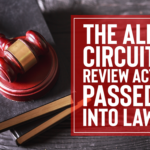Nearly all types of civil lawsuits contain a statute of limitations, meaning the period of time in which a plaintiff must bring the action for a court to be able to hear it. The False Claims Act (FCA) is no different in this respect, but what is unusual about the FCA is that it contains two separate statutes of limitations: 1) one relating to the period after which the specific FCA violation occurred (6 years); and 2) another relating to the period after which the federal government learns of the fraud (3 years).
These two distinct time periods have caused a “circuit split” among the federal courts of appeals, with various courts applying different interpretations of when to apply the two different standards. In April, the Eleventh Circuit Court of Appeals jumped into the fray by providing a more plaintiff-friendly interpretation of the dueling deadlines.
According to the Eleventh Circuit’s ruling, a private plaintiff can bring an FCA suit more than six years after the violation occurred so long as it was within the three year period that the government learned about the fraud, even if the government did not decide to pursue the FCA claim (the Department of Justice has the option of joining a private plaintiff’s FCA claim, but, should they decline, the private plaintiff can pursue the claim on his or her own).
The FCA Lawsuit Was Filed More Than Six Years After the Alleged Fraud
The FCA lawsuit was brought by Billy Joe Hunt, a former employee of Parsons Infrastructure & Technology, against Parsons and a separate company called Cochise Security that both provided services to the U.S. military during the Iraq war. According to Hunt’s lawsuit, he learned that Parsons and Cochise was awarded a $60 million contract (along with $3 billion in funds to purchase armored vehicles) to provide security to contractors cleaning up munitions left by enemy combatants because a US official in charge of awarding the contract was bribed by company representatives.
Although the alleged bribery scheme occurred in 2006, Hunt did not inform the federal government of it until 2010 when he was implicated in a separate kickback scheme (Hunt eventually served 10 months in federal prison for tax fraud and conspiracy). Hunt did not file his FCA lawsuit until 2013, at least seven years since the alleged fraud occurred. In 2015, the federal government declined to join the lawsuit.
The defendants argued that the case should be thrown out because Hunt waited more than six years to bring the case, and the federal district court judge agreed. But the Eleventh Circuit reversed, finding that Hunt did file the lawsuit within three years of informing the federal government of the fraud in 2010.
Note that other circuit courts have reached different conclusions, some finding that the six-year period should always apply to private plaintiffs, as opposed to the government. In any case, it is important for those who are aware of fraud carried out against the government to act quickly in reaching out to an attorney to bring their claim to avoid being blocked by the statute of limitations.
Work With a Whistleblower Attorney to Bring Your FCA Claim
Any person with original information relating to a fraudulent scheme that ultimately victimizes taxpayers can bring an FCA claim and potentially win a financial reward of between 15% and 30% of the total amount recovered in the
At Kreindler & Associates, our experienced FCA attorneys will work with you every step of the way to determine your appropriate course of action, protect you from retaliation, and collect your much-deserved reward. If you suspect that someone is committing kickback fraud, procurement fraud, healthcare fraud, or other forms of fraud against the U.S. government, contact us today for an evaluation of your allegations.



